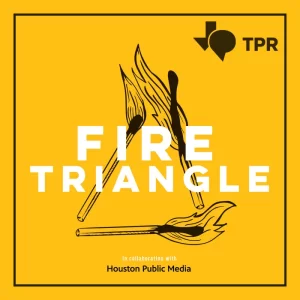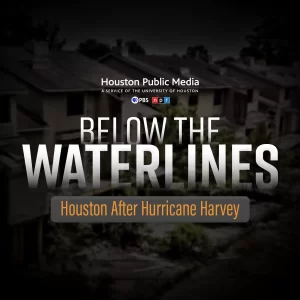Selected Climate & Environment Reporting
NPR: “Oyster reefs in Texas are disappearing. Fishermen there fear their jobs will too” (Read & Listen)
The Guardian: “Major US railroad merger could bring more tar sands to south-east Texas” (Read here, Listen here)
Houston Public Media: “Nearly 5 years after Hurricane Harvey, thousands of Houston homeowners are still waiting for assistance – and might not get it” (Read & Listen)
Marketplace: Renewable energy startup aims to help Texans lower electric bills (Read & Listen)
Houston Public Media: Some Texas Petrochemical Facilities Get A Pass On Chemical Leak Monitoring During The Pandemic (Read & Listen)
Houston Public Media: Researchers work to protect coral, as signs of a deadly disease appear off the Texas Gulf Coast (Read & Listen)
Houston Public Media: Fifth Ward residents tired of waiting for action after soil samples confirm presence of toxic dioxin near contaminated railyard (Read & Listen)
Houston Public Media: Houston’s outdoor workers are the most vulnerable to heat-related illnesses, but laws have yet to pass to protect them (Read & Listen)
National Geographic: How Older Widow Spiders Seduce Younger Males—And Eat Them (Read & Listen)
Podcasts, Projects & Investigations
Podcast: Fire Triangle
I co-reported, wrote, and hosted this limited series podcast. It was awarded a 2022 Regional Murrow Award for News Series.

In two years, about half a dozen chemical disasters ripped apart Texas neighborhoods, sent dozens of people to the hospital and killed unsuspecting bystanders as well as workers. Texas Public Radio and Houston Public Media spent the better part of 2020 investigating these events. We met with victims whose lives have been changed by chemical disasters, spoke with community advocates who are fighting back, and examined the frayed patchwork of local, state and federal policies around chemical safety. We answer the question: why do so many chemical disasters keep happening in Texas, and what—if anything—is being done to prevent more? (Listen)
Investigation: Hot Stops
I co-reported, wrote, and hosted this investigation and limited series podcast.

I teamed up with Houston Public Media’s health reporter to investigate the impact of extreme heat on public transit riders. We worked with researchers to develop our own pilot study to take temperature readings at bus stops. We found that in some cases Houston bus shelters were actually making the heat worse for riders, reaching dangerously hot temperatures. We spoke with dozens of riders who experienced heat illness while waiting for the bus, and filed records requests for 911 calls from bus stops. All this comes as the local transit agency is preparing to spend millions in rolling out more bus shelters using the same design. The second part of our investigation used our data to look at solutions. Our series prompted action from some local leaders.
Read part 1 of the investigation here and part 2 here. Or, listen to the podcast.
Podcast Episode: Flood Control Goes Green
I reported, wrote, and hosted episode 3 of the Below the Waterlines podcast. The podcast won a 2023 Regional Murrow Award for News Documentary.

Below the Waterlines: Houston after Hurricane Harvey was a podcast produced by the enterprise team at Houston Public Media to mark the five-year anniversary of the region’s worst flooding disaster. In Episode 3, I looked at innovative green solutions being tested to reduce flooding in Houston, from floating wetlands to an abandoned golf course-turned-nature preserve. (Listen and read.)